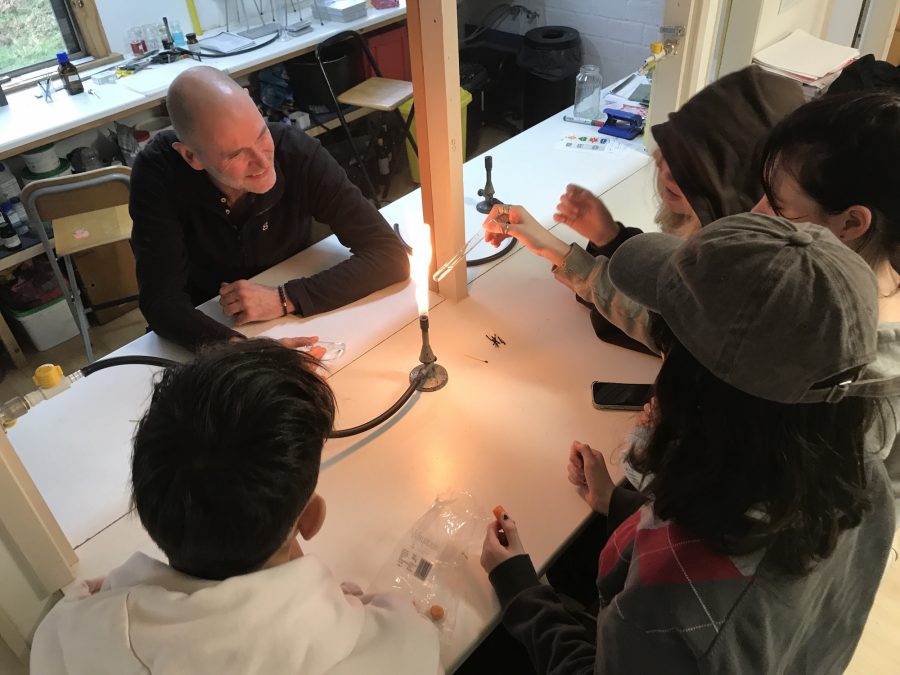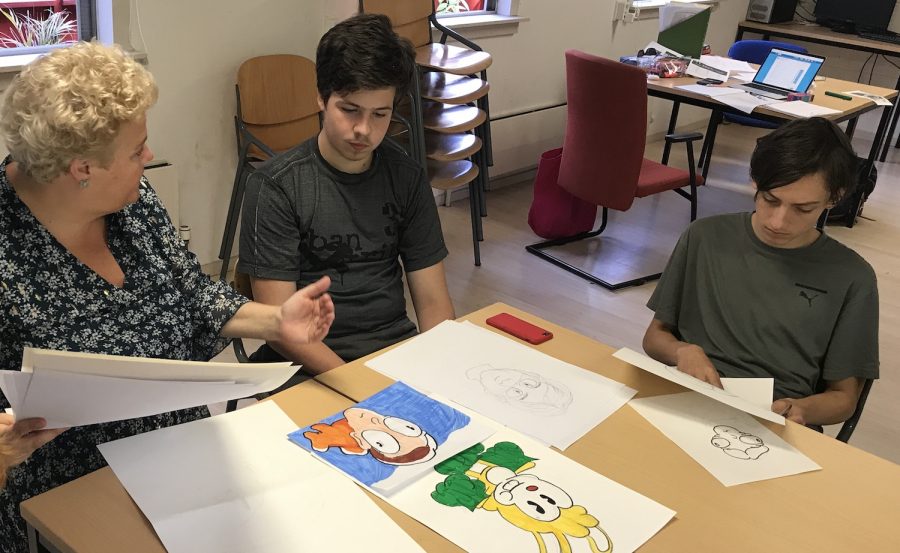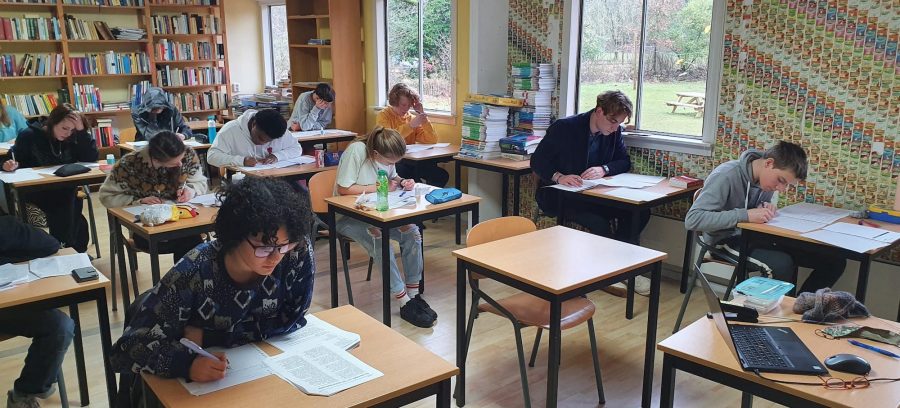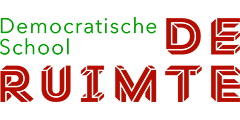Diploma, yes or no?
One of the first questions people ask when they hear about democratic education is: what about diplomas? It shows how we were all educated with the primary focus on getting that precious piece of paper. We tend to think it is the only way to get on in life. De Ruimte offers the possibility to discover myriad ways to make your life, with or without diploma.
On this page we want to inform you about the different ways to prepare for life after school. That may be a next step in education, but might also be a job, travelling abroad or starting your own business.
Different Phases
Young students discover the school while playing. When they are about 10 years old they start showing interest in school circles, classes, roles, responsibilities and relationships. Who am I, what do I want and what am I capable of? When they are about 15 the future comes into view and a new part of life opens up.
The central question in this phase is: what am I going to do when in a few years time I will leave this school? What talents, knowledge and skills do I want to develop to propel myself into the future? All of a sudden time is no longer infinit and the world outside the school becomes very interesting. The path of subjects, classes, exams is one that billions of people have gone before you, but it may not be the most alluring path for you, nor the one to fulfil your deepest desires. What to do? We try to help students find a path that suits and serves therm. We explore how the world can be your place of learning, and with what people and under what circumstances you can move in your direction. It can be done in many ways in and outside school. We will look into three possibilities: going your own way, proof of transition and state exams.

Going your own way
So what do you do when you think the beaten track is not for you? How do you prepare for a future that is of your own making? The question arises: who am I in this world and what can I do? Answers can be found by going into the world and find them: do an internship, make a trip, work or take responsibility outside the school in another way. In the study circle leave of absence request can be made, as long as you can make clear how this serves your self education. The whole world becomes a field of opportunity. Not all students need to leave the school to educate themselves; they use their time at the school to improve themselves in music, art, programming, investments or starting a business.
Proof of transition
It may come to pass that somewhere between 14 and 18 you get a clear sense of what direction you want to take in life and that vocational education is what may bring you there. Or you have experienced all the interesting sides of democratic education and you are looking for the quickest way to a diploma. In those cases it is helpful to work at De Ruimte towards a proof of transition, which will help you to apply and get accepted at the school or institute where you want to make your next step.
Customized proof
How do we do this at a school where there is no curriculum and hardly any testing? There are no legal requirements for a transition report. Schools can devise them in a way that suits them best. That is great, because it allows us to make customized proofs of transition.

Roadmap
The study circle is the circle that approves the transition reports. They have to be able to justify what is written in those reports. A roadmap is available to help students and their parents to take the right steps leading to sufficient proof of transition. Students are given this roadmap as soon as they start on this path so they know what they are getting into, because this report will not come falling from the sky.
Student on the tiller
The responsibility for collecting the burden of proof lies with the student. He will be supported by his coach, his teachers, fellow students and a member of the study circle coordinating the proofs of transition. In the end the student has to deliver sufficient proof of his knowledge and skills, either by tests or in any other way.
The grades for the chosen subjects form the first part of the proof of transition. The second part is a report from the student’s coach on all the other skills the student has developed being part of the school community. The report is then presented to the study circle for approval.
The path to a diploma
Yearly about a dozen students of the school choose to do exams in one or more subjects. Sometimes the goal is to work towards a full diploma, sometimes they are only interested in certificates for certain subjects. Some students are thrilled that they do not have to do any exams if they do not want to, others see it as a necessary evil, and there are also students who really enjoy studying for exams.

Preparation for state exams
How do we prepare for state exams at De Ruimte? In the first week of school teachers present their plans for the coming year to the students who are interested. Together they try to come to a logic and efficient cooperation in small groups that will help them reach their goals. This usually makes for an interesting palette of classes and activities.
I do the following classes: mathematics, Dutch, social sciences, English, chemistry, physics, German and Russian, sexuality and relationships, the drum group, band practice and of course the lunch cafe! I am currently preparing for my English exam. I am good at English, I learned it at a young age by watching English movies. Also by gaming and by communicating with people in English.
Next year I will try to get to the same level with all my subjects and then do all my exams in one go. If it turns out that I can take an exam earlier for some subjects, I will do that, for example social studies and Dutch. Mathematics is also good for me, I like that subject.
Olivier van Asperen, 17
Self study
Some students prefer to work towards the exams on their own. They choose their own time and way and sometimes check with the teachers to see if they are still on track. Some students make a mix of classes and self study. There is not one way carved in stone. You do whatever serves you best.
Exam practise
In december there is a week with test exams on all subjects. Students can test themselves in any chosen subject scheduled on different days. They make last years exams; on the one hand to test their knowledge and on the other hand to experience the full pressure of an exam. The outcome can be evaluated with a coach or teacher to help decide whether or not to go up for the exam in May.
State Exams
The grades for your exams for secondary education are based for 50% on the outcome of the Central Exams in May. At a regular school the other 50% can be earned through tests you do at school. De Ruimte is not qualified to do the testing at school, so for our students (and other people who do state exams) this part of the testing is done at so called College exams. Most of them consist of a written exam in May in as well as an oral exam in July. The combination of the two make up for the other 50%. More information on state exams you can find at: www.DUO.nl/staatsexamenkandidaat.
Read more
• Our vision on education
• Free to learn
• Frequently asked questions

